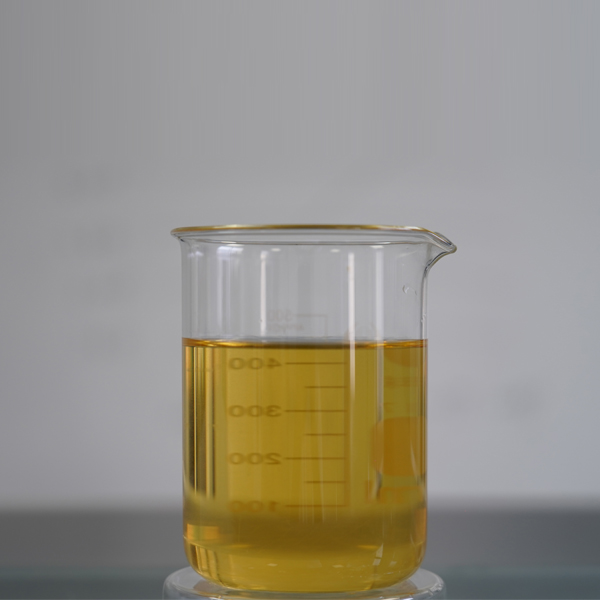
News
pro . 25, 2024 20:25 Back to list
CE Certified Chelated Iron Fertilizers for Optimal Plant Nutrition and Growth
Understanding CE Certification for Chelated Iron Fertilizers
Introduction
The agricultural industry is constantly evolving, with various innovations aimed at enhancing crop yield and sustainability. One such innovation is the use of chelated iron fertilizers. These specialized fertilizers play a crucial role in addressing iron deficiency in plants, particularly in alkaline soils where iron is often unavailable. However, with growing global concerns over agricultural practices and their impact on the environment, the importance of certification, such as CE (Conformité Européenne) certification, has become increasingly relevant.
What is Chelated Iron?
Chelated iron refers to iron that is chemically bonded to organic molecules, known as chelators. This bonding process enhances the bioavailability of iron to plants, allowing for better absorption through roots. Unlike traditional iron fertilizers, which can precipitate in alkaline conditions, chelated forms remain soluble and readily accessible to plant systems. This makes chelated iron essential for crops that exhibit signs of iron chlorosis, a condition characterized by yellowing leaves due to insufficient iron uptake.
The Importance of CE Certification
CE certification is a mandatory conformity marking for certain products sold within the European Economic Area (EEA). It signifies that a product meets the essential health, safety, and environmental protection requirements outlined by European legislation. For chelated iron fertilizers, CE certification ensures that the product is not only effective but also safe for use in agriculture.
There are several key benefits of obtaining CE certification for chelated iron fertilizers
1. Market Access CE certification opens doors to the European market, allowing manufacturers to reach a broader audience. Compliance with EU regulations demonstrates that the product has been rigorously tested and meets required standards, instilling confidence in customers and distributors alike.
2. Quality Assurance The process of obtaining CE certification involves a thorough evaluation of the product’s formulation, efficacy, and safety measures. This ensures that only quality products reach consumers, reducing the risk of ineffective or harmful fertilizers entering the market.
3. Environmental Responsibility With increasing scrutiny over agricultural practices, CE certified fertilizers are often developed with improved formulations that minimize environmental impact. This includes considerations for soil health, water contamination, and effects on non-target organisms.
ce certification chelated iron fertilizer

4. Consumer Trust For consumers, CE certification is a vital indicator of credibility. It reassures farmers and gardeners that the products they are using are tested for reliability and safety, which can enhance their overall farming experience and outcomes.
5. Regulatory Compliance For manufacturers, navigating the complex landscape of national and international regulations can be a daunting task. CE certification simplifies this process by providing a consistent framework that is recognized across multiple countries.
The Process of CE Certification
Obtaining CE certification for chelated iron fertilizers involves several steps
1. Product Testing Prior to certification, the fertilizer must undergo rigorous testing to validate its effectiveness, safety, and compliance with European standards.
2. Documentation Manufacturers need to prepare comprehensive technical documentation that includes details on the product formulation, testing results, and safety data.
3. Quality Management System Establishing a robust quality management system is essential to ensure consistent product quality and compliance with standards.
4. Assessment by Notified Bodies In many cases, an independent third-party notified body will evaluate the product to verify compliance with CE requirements. This may involve inspecting the manufacturing processes, quality control systems, and final product testing.
5. Issuance of CE Mark Upon successful verification, the manufacturer is granted the right to use the CE mark, signaling compliance with EU regulations.
Conclusion
The role of chelated iron fertilizers in modern agriculture cannot be overstated, especially given their ability to mitigate iron deficiency in plants. As the industry continues to prioritize safety, quality, and sustainability, CE certification serves as a critical element in ensuring that these fertilizers meet the highest standards. For manufacturers, obtaining this certification not only enhances their credibility but also paves the way for greater market access and consumer trust. As the agricultural landscape evolves, embracing certification processes like CE will be key for manufacturers looking to innovate responsibly and sustainably.
-
OEM Chelating Agent Preservative Supplier & Manufacturer High-Quality Customized Solutions
NewsJul.08,2025
-
OEM Potassium Chelating Agent Manufacturer - Custom Potassium Oxalate & Citrate Solutions
NewsJul.08,2025
-
OEM Pentasodium DTPA Chelating Agent Supplier & Manufacturer High Purity & Cost-Effective Solutions
NewsJul.08,2025
-
High-Efficiency Chelated Trace Elements Fertilizer Bulk Supplier & Manufacturer Quotes
NewsJul.07,2025
-
High Quality K Formation for a Chelating Agent – Reliable Manufacturer & Supplier
NewsJul.07,2025
-
Best Chelated Iron Supplement for Plants Reliable Chelated Iron Fertilizer Supplier & Price
NewsJul.06,2025
